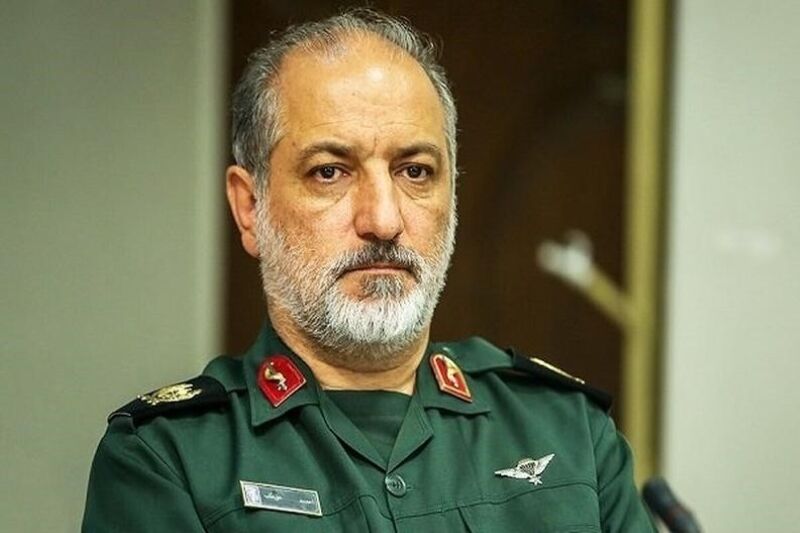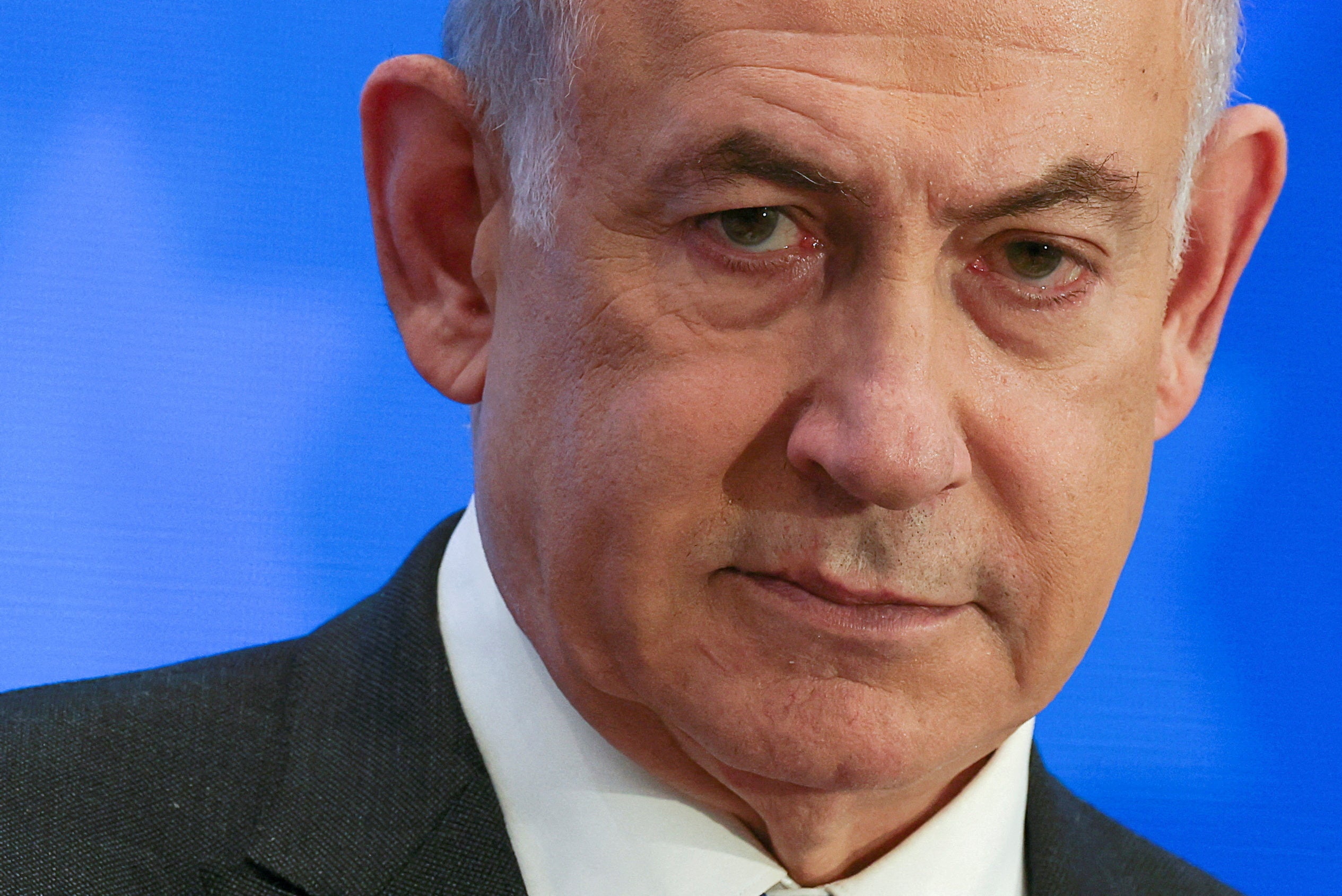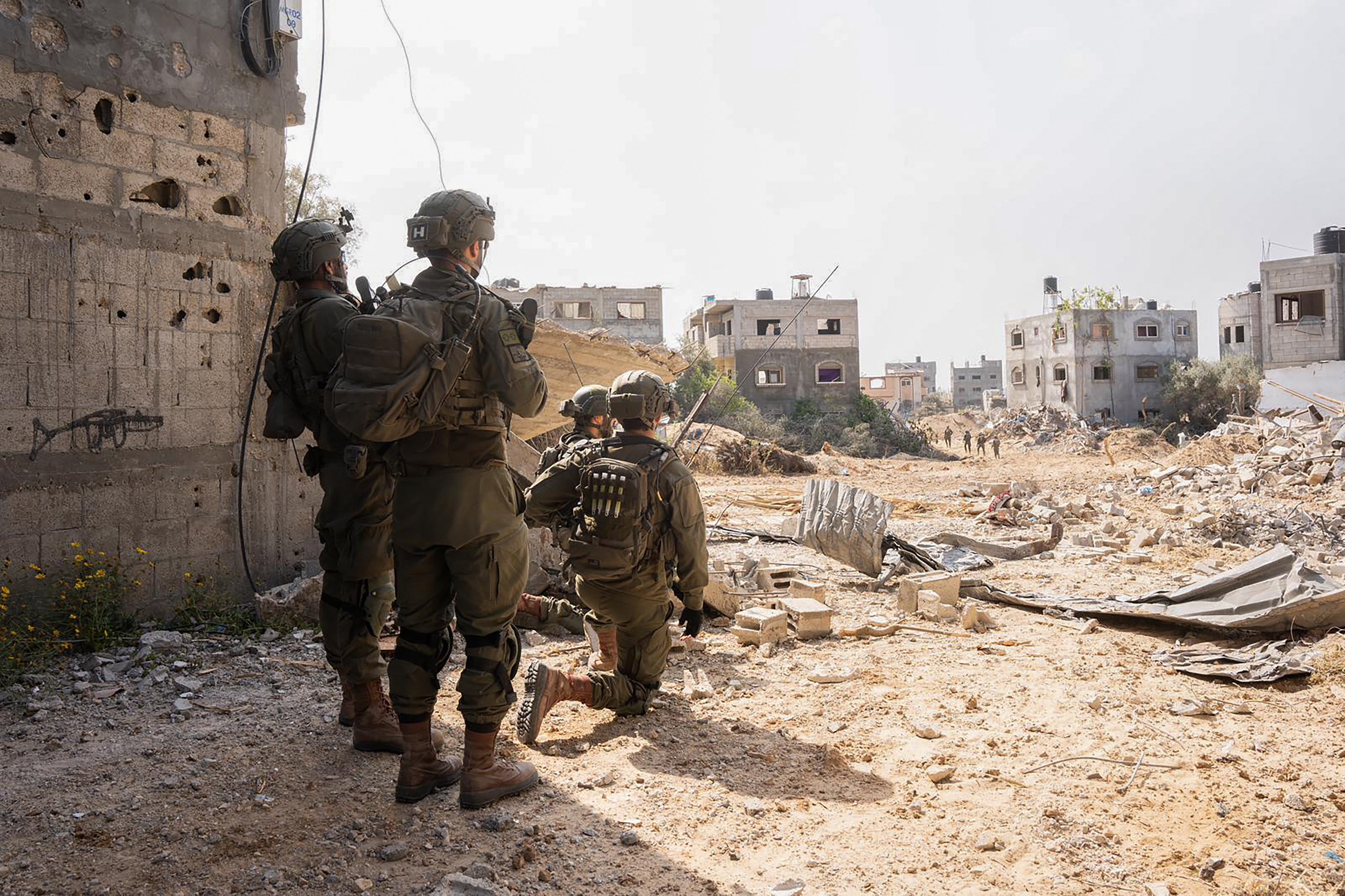Iran makes first nuclear threat over possible Israeli attack as US and UK slap fresh sanctions on Tehran
Tensions between Israel and Iran have reached new heights as Tehran repeats its warnings that a response to its own missile attack could be lethal for the region
A senior Iranian commander has issued Tehran’s first nuclear threat since it launched a missile and drone attack against Israel as it looks to warn off a retaliatory assault.
Israel has yet to decide - or at least announce publicly - how to respond to the Iranian attack last weekend, which saw Tehran fire more than 300 missiles and drones at Israel.
But several members of its five-person war cabinet have alluded to military retaliation despite calls from Israel’s western partners to act with both their head and their heart.
On Thursday, senior Iranian Revolutionary Guards commander Ahmad Haghtalab warned that Israel’s recent threats to respond “make it possible to review our nuclear doctrine and deviate from our previous considerations”.
He added that if Israel was to attack its nuclear centres, “we will surely reciprocate with advanced missiles against their own nuclear sites”.
It is the first time Iran has explicitly referenced its suspected nuclear weapons programme since it launched its attack against Israel.

And it comes a day after Iran’s president Ebrahim Raisi warned that even the “tiniest” invasion of its territory would bring a “massive and harsh” response.
Experts have warned that since Donald Trump abandoned a nuclear pact between Iran and the US, Tehran has become capable of building a nuclear bomb in six months to a year.
While one senior US official told ABC News that Israel was likely to hold off its response to the Iranian attack until after Passover, the major Jewish holiday that lasts from Monday to 30 April, top Israeli officials remain tight-lipped about their intentions.
Israeli prime minister Benjamin Netanyahu, following a meeting with UK foreign secretary David Cameron on Wednesday, said it was his country, and his alone, that would be the one to decide whether and how to respond.
Brigadier-General Doron Gavish, head of Israel’s air defence task force, meanwhile, said Israel has been working overtime to rebuild its stockpiles in preparation for another possible attack from Iran or its proxies.

It comes as the US and UK launched sweeping sanctions against Iran and its military arm, the Islamic Revolutionary Guard Corps (IRGC), heeding calls from Israeli officials to carry out a “diplomatic attack” in response to Tehran’s assault.
The US announced new sanctions on Iran targeting its unarmed aerial vehicle (UAV) production. The Treasury Department said the measures targeted 16 individuals and two entities enabling Iran’s UAV production, including engine types that power Iran’s Shahed variant UAVs, which were used in the 13 April attack.
US president Joe Biden said the sanctions showed the US were committed to Israel’s security and would continue to hold Iran accountable.
“Let it be clear to all those who enable or support Iran’s attacks: The United States is committed to Israel’s security,” he said.
“We are committed to the security of our personnel and partners in the region. And we will not hesitate to take all necessary action to hold you accountable.”
Britain placed sanctions on Iranian military entities, including the General Staff of the Armed Forces and the Islamic Revolutionary Guard Corps (IRGC) Navy, according to an official notice. The British sanctions target 13 entities or individuals in total, the notice showed.

It followed announcements from the European Union (EU) to step up sanctions against Iran. The decision was made after the EU’s first summit with all 27 national leaders since the Iranian attack last Saturday
“We feel it’s very important to do everything to isolate Iran,” said Charles Michel, president of the European Council and chair of the summit.
He said that the new sanctions against Tehran would target companies involved in the production of drones and missiles.
Regarding the ongoing war in Gaza, a conflict at the heart of the wider tensions in the Middle East, senior US officials are set to hold a virtual meeting with their Israeli counterparts to discuss Israel’s plans for the southern Gaza city of Rafah as Washington seeks alternatives to an Israeli offensive. The meeting is a follow-up to a similar meeting held on 1 April.
Mr Biden has urged Israel not to conduct a large-scale offensive in Rafah to avoid more Palestinian civilian casualties in Gaza, where Palestinian health authorities say more at least 33,970 Palestinians have been killed and 76,770 wounded since 7 October, when Hamas launched its attack on Israeli soil.
Hundreds of thousands of displaced Palestinians are currently residing in Rafah with nowhere to go. Swathes of the Gaza Strip have been completely destroyed.
Join our commenting forum
Join thought-provoking conversations, follow other Independent readers and see their replies
Comments
Bookmark popover
Removed from bookmarks